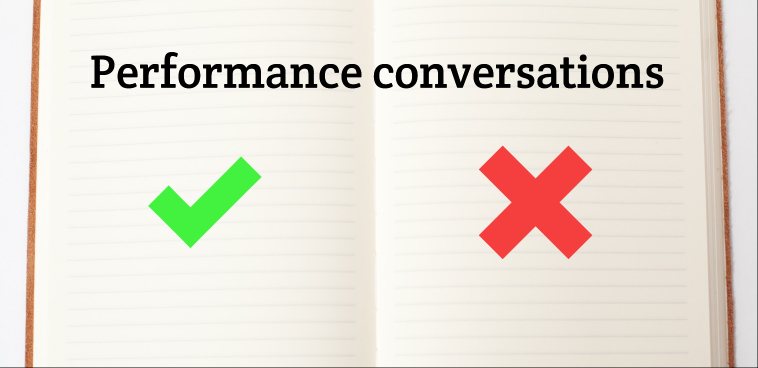The purpose of performance conversations is to improve employee performance. What often stands in the way of an effective performance conversation is the manager’s hidden agenda. In this article I talk about the five hidden agendas that prevent good performance conversations:
- The intention to punish
- The intention to prove a point
- The intention to showcase your own brilliance
- The intention to comply
- The intention to prove your power
The intention to punish
Do you visualize embarrassing the employee or bringing her to tears? If you find any pleasure in your employee’s discomfort, it means you are headed for the danger zone. You may have good reason to be angry, but resentment is a sign that your intention may not be in the right place. If you feel any ill will toward your employee, practice some forgiveness before you initiate the conversation.
The intention to prove a point
If you find yourself preparing an argument, your focus is in the wrong direction. While your employee might have a contrary point of view, there’s no need to play verbal ping-pong. You are the boss, but don’t forget that you’re on the same team. You don’t have to win the match point to prove you are right. Simply get clear about your desired outcome and you won’t be distracted to play a game where there’s a winner and a loser.
The intention to showcase your own brilliance
If you find yourself feeling good about knowing more, you might be tempted to showcase your own talents rather than coach the employee. Make sure you aren’t using your conversation as a stage for bragging rights. Don’t talk about your years of seniority, your education or your experience. You don’t have anything to prove. Instead, think about ways to use your education, experience and seniority to help the employee shine.
The intention to comply
We’ve all initiated a difficult conversation for the purpose of documenting the conversation instead of for the purpose of improving performance. If you find yourself dreading the conversation and not putting any effort into it, it’s a good sign you might have fallen into the compliance trap. Take a moment to get clear on what the employee can do or should stop doing in order to improve performance. Put more concern and effort into the conversation rather than just documenting the conversation.
The intention to prove your power
If your discipline seems a bit over the top compared to the mistake that was made, ask yourself if you have the need to prove your power. Don’t get into a power struggle with your “know-it-all-newbie” who needs to know you’re the boss. Don’t make one employee the scape goat because you have let all the employees get by with poor performance. Check in with your manager-colleagues to make sure your course-correction is geared toward making the employee better. Overpowering someone only feels good in the moment, but longer term you will be more respected if employees view you as fair.
Intention is everything when it comes to effective performance conversations. By setting the right intention first you can clear away any unconscious ulterior motives that prevent honest dialogue. The result is better performance from the employee and a higher level of leadership for yourself.
Marlene Chism is a consultant, international speaker and the author of “Stop Workplace Drama” (Wiley 2011) and “No-Drama Leadership” (Bibliomotion 2015). Visit her website, and connect via Linked In, Facebook and Twitter.
If you enjoyed this article, join SmartBrief’s e-mail list for our daily newsletter on being a better, smarter leader. We also have more than 200 industry-focused newsletters, all free to sign up.
